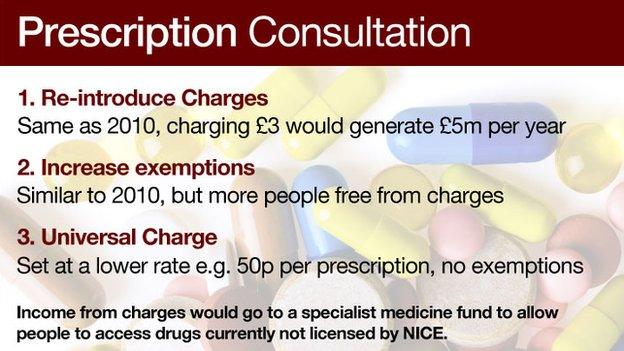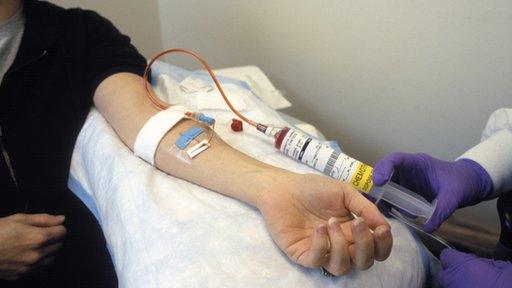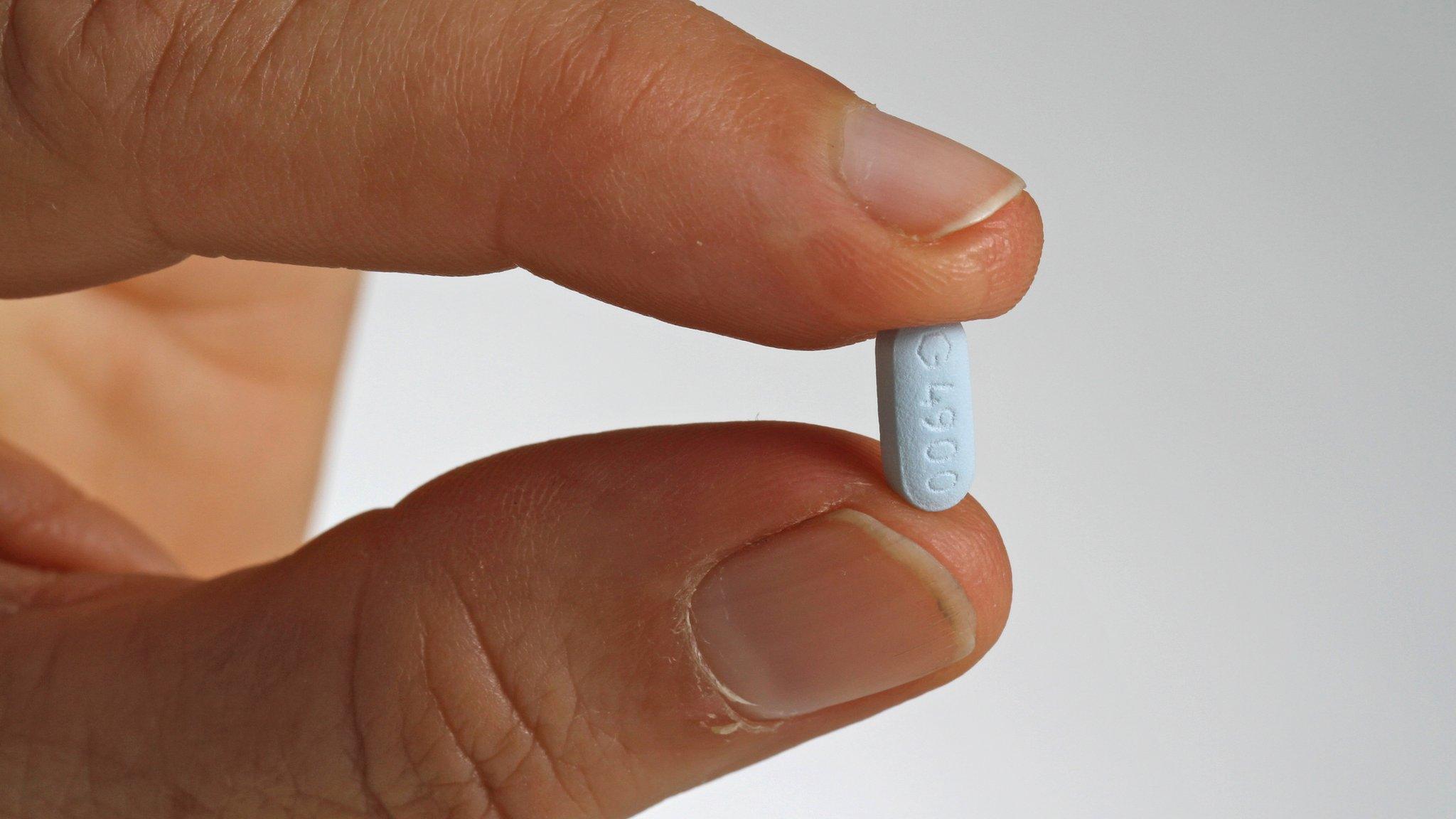Prescription charges: NI health minister proposes reintroduction
- Published
Jim Wells said he did not find it unreasonable to ask people to contribute to the cost of their prescription.
Health Minister Jim Wells has proposed the reintroduction of prescription charges to pay for a new specialist drugs fund in Northern Ireland.
The amount that would be charged and any exemptions are to be decided during a three-month consultation.
The specialist drugs fund would pay for drugs that are either too expensive or too specific to be licensed for use at the moment.
Prescription charges were abolished in Northern Ireland in 2010.
The Department of Health hopes to raise between £5m and £10m through some form of prescription charging.
The specialist drugs fund would be similar to the cancer drugs fund in England and would pay for drugs that are either too expensive or too specific to be licensed by NICE (National Institute for Health and Care Excellence) for general use at the moment.


Analysis
By John Campbell, BBC News NI Economics and Business Editor
In 2012/13 the cost of prescriptions to the health system in Northern Ireland was £377m.
It is estimated that when prescription charges previously existed in NI they covered only 3.5% of the total cost of medicines prescribed due to the various exemptions. In 2007, the charges amounted to £13m.
Around half of all prescriptions were written for people who were over 60 and therefore exempt.
In England, which has retained the charges, around 90% of people do not have to pay for their prescriptions due to exemptions relating to age, benefits and particular medical conditions.
In light of any saving that reintroduction of the charges would achieve, it is worth remembering the day-to-day health budget for 2015/16 is £4.6bn with £467m earmarked for pharmaceutical services alone.

Mr Wells said he was keen to stress that any prescription payment would be minimal.
He said: "In view of the current financial position, and the need to invest in services such as the provision of new specialist drugs, I believe that this may be an appropriate time to reconsider the provision of free prescriptions in Northern Ireland."
The consultation outlines a number of options.
Speaking to BBC Newsline's Tara Mills, Health Minister Jim Wells said his preferred option is a system where everyone pays for prescriptions
The first suggestion is to reintroduce the same system that was in place in 2010, charging £3 an item would generate around £5m a year.
The second option would be to adopt a similar system but increase the number of exemptions. In England, all patients being treated for cancer get free prescriptions.
The final option is to introduce a universal charge. This would be set at a much lower rate of say £0.50 per prescription but there would be no exemptions.
- Published27 November 2014
.jpg)
- Published20 June 2014

- Published16 November 2014
